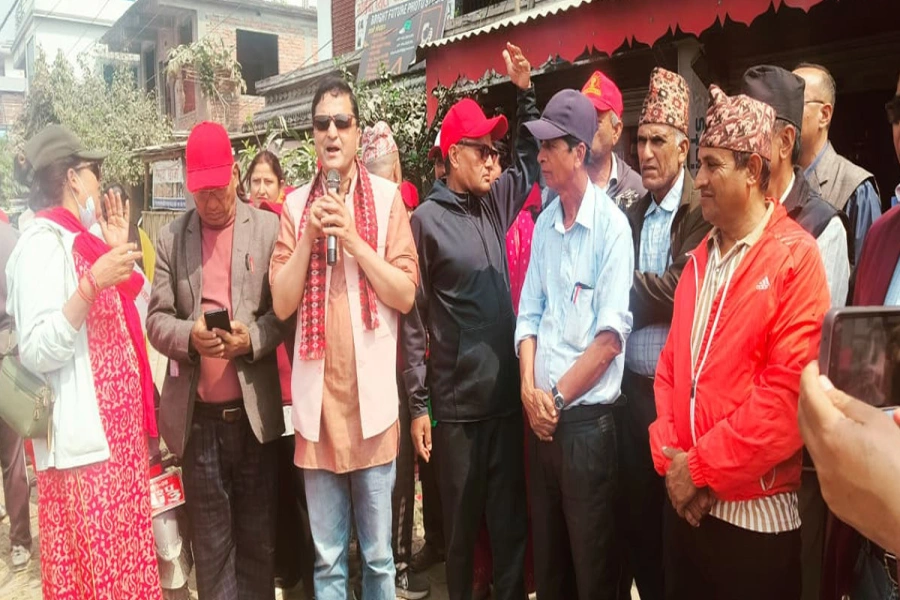KATHMANDU, May 9: The government has ensured that regular vaccination against cervical cancer or human papillomavirus (HPV) will be conducted, covering all teenage girls beginning from the next fiscal year.
Director of the Family Welfare Division under the Department of Health Services, Bibek Kumar Lal, stated that the Global Alliance for Vaccines and Immunization (GAVI), which supplies the vaccine, has sent a commitment letter ensuring a sufficient vaccine supply. This assurance indicates that the vaccination program will now be made regular.
"GAVI sent the commitment letter two weeks ago," Lal disclosed. "Following this, we have proposed the necessary budget for the vaccination campaign in the upcoming budget, which has been forwarded to the Ministry of Health."
Nepal sets up school vaccination centers for cervical cancer

However, Lal pointed out that the letter did not specify whether the vaccine would be provided all at once or in installments. Nevertheless, it was inferred from GAVI's communication that the vaccine would be distributed to all eligible girls within the new fiscal year.
"The government had procured the vaccine against cervical cancer this year," Lal said. "It was administered in two doses, with 20,000 doses procured, benefiting approximately 10,000 teenage girls. The government allocated Rs 40 million for the free vaccine."
In the upcoming years, the vaccination will be phased out to ensure that girls aged between 10 and 14 receive regular vaccinations. Lal emphasized the importance of including the HPV vaccine in the regular vaccination program despite its relatively high cost, given its effectiveness in preventing cervical cancer, a major health concern for women.
"The cost of the vaccine may be high, but compared to the significant costs associated with treating cervical cancer, it is a prudent investment in disease prevention," Lal stated.
According to medical professionals, the HPV vaccine is crucial in preventing cervical cancer, a disease that poses a significant health risk to women. In Nepal, cervical cancer affects a considerable number of women, with statistics from 2022 revealing 2,244 cases reported. The Global Citizens' Assembly Network (GloCAN) reports that six individuals are diagnosed with cervical cancer daily in Nepal. Given its mode of transmission through unprotected sexual contact, administering the vaccine to girls aged 10 to 14 is a strategic preventive measure.
The government previously conducted a model vaccination program in Chitwan in 2016 and 2017 as part of its efforts to combat cervical cancer.
























-1772436151.webp)












